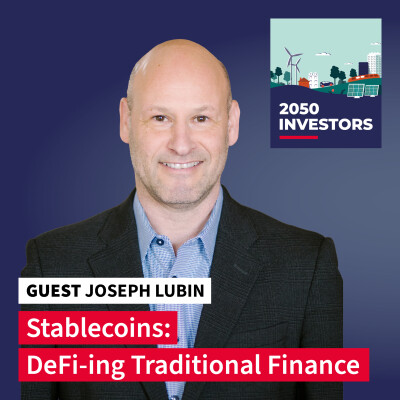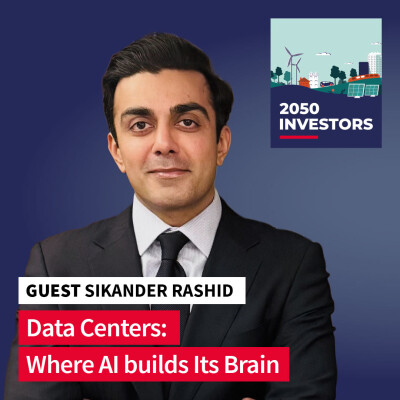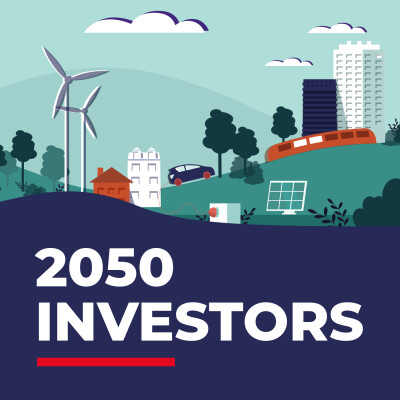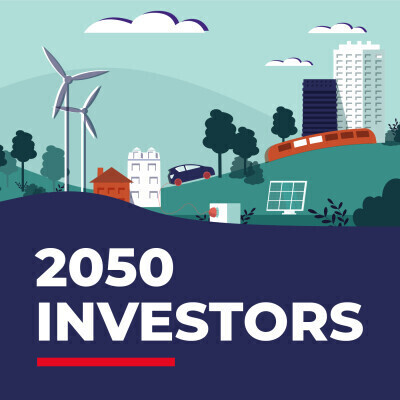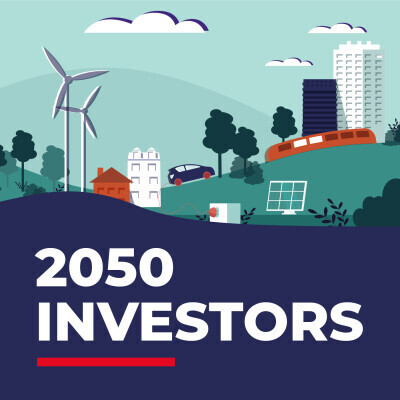- Speaker #0
Hey, Koku. This place is intriguing. Where are we?
- Speaker #1
Welcome to Currency Canyon, Siri. We've stepped into a dusty old saloon. Look around. At several tables, global currencies are locked in a high-stakes poker game, each striving for dominance and urgency power in a tense and unpredictable showdown.
- Speaker #0
Wait a second. Are we in some kind of Western movie set in 2009?
- Speaker #1
Not quite. This virtual reality is a vivid creation of my imagination. This saloon buzzes with the tension of past, present and future economic battles. A struggle for survival against inflation.
- Speaker #0
This is all so intriguing. Tell me, what's happening at that table over there?
- Speaker #1
Over there, my friend, the currencies are laser-focused on their game. Each move calculated. See how the euro remains calm and composed while the pound leans forward with a confident wager. The Swiss franc is carefully considering its next move, as the Japanese yen, battling deflation, is boldly going all-in. The Deutschmark and the French franc stand silently nearby, solemn reminders of past triumphs and defeats.
- Speaker #0
Wait, who's that at the door? The mysterious figure with a low hat and steely eyes.
- Speaker #1
Ah, that's Billy Crypto. His first ever appearance in Currency Canyon.
- Speaker #0
Who the hell is Billy Crypto?
- Speaker #1
Well, Billy Crypto is considered a rogue outlaw, set to disrupt the banking stagecoach by some, and hail as a hero ready to rescue Currency Canyon from inflation and inefficiency by others. Perhaps he represents the solution to preserving economic energy, something fiat currencies have long struggled to achieve.
- Speaker #0
I see. Billy Crypto is Neo in the Matrix movie, and I guess that the town's law enforcer, dare I say Mr. Anderson.
- Speaker #1
Nice one, Siri. But this is the wild, wild west. They call him Sheriff Dollar Greenback, better known as the Central Bank, a veteran old-timer. Stranger, you knew Arambi's parts? We don't take kindly to currencies running loose without central control. You got a license to play around here, son? And so, dear listeners, began the legendary showdown. The clash between tradition and innovation. The question remains, will they always hold their ground, or will the new frontier of crypto redefine the rules?
- Speaker #0
Let the showdown begin.
- Speaker #1
Welcome to 2050 Investors, the podcast that deciphers economic and market megatrends to meet tomorrow's challenges. I'm Koku Agbobla, I head up economics, process set and quant research at Societe Generale. In this episode, we delve into the world of cryptocurrencies, blockchain, DeFi and stablecoins in the wake of recent endorsements by the US government. What foundational principles underpin cryptocurrencies? And what factors are fueling their rapid rise in popularity? We will dive into the intriguing world of decentralized finance or DeFi, a system where financial products operate on decentralized public blockchains, bypassing traditional intermediaries like banks and brokerages. Could cryptocurrencies truly become the ultimate form of economic energy storage?
- Speaker #2
If staples provide everything a checking or savings account can provide, banks should help their customers use them. If accessing decentralized finance is good for users, banks should help their customers navigate DeFi.
- Speaker #1
Later in this episode, we interview Joseph Flubin, co-founder of Ethereum, CEO of ConsenSys, We chat about the impact of stablecoins in the financial sector, as well as their relationship with traditional banks. We will also address the fundamental issue of trust in digital money, regulation, future payment, and tracking the balance between consumer protection and innovation. Let's start our investigation.
- Speaker #0
So, I hear a lot of people using the term economic energy storage. Can you explain?
- Speaker #1
Of course, Siri. In this fascinating and insightful interview, we hear from Michael Saylor, the billionaire executive chairman and co-founder of Strategy. a Bitcoin development company. Saylor is one of the most vocal advocates of Bitcoin, often framing it as a technological breakthrough akin to the internet or electricity.
- Speaker #3
A type 1 diabetic cannot form fat because they do not have insulin. Then another phrase for organic energy is fat. Fat is an organic battery. So when someone's a type 1 diabetic, they can eat all day long and they're going to starve to death. If I take your insulin away from you, it's a death sentence. Removing someone's property rights when I strip you of property rights is a death sentence economically. I'm literally saying you cannot store economic energy. Being able to store monetary energy over long periods of time is no different than being able to store fat. We have harnessed monetary energy on a network.
- Speaker #0
So for Michael Saylor. Bitcoin is this encrypted energy crucible. The definition of a crucible is a heat-resistant container used in metallurgy for melting metals at very high temperature.
- Speaker #1
Nice metaphor. All in all, this all boils down to finding the ultimate store of value or economic energy. And for Michael Saylor, Bitcoin is the digital solution to this ancient human challenge.
- Speaker #0
So what about the showdown between Billy Crypto and the sheriff dollar Greenback?
- Speaker #1
Okay. Before this epic standoff escalates, let's step back and set the scene. Blockchain, crypto mining, DeFi, stablecoins, what do these words even mean? Siri, let's go on a little adventure that I will call the fellowship of the blockchain. In Gazadum, the mines of Moria, the underground kingdom beneath the misty mountains, realm of the dwarves of Durin's fall. Sorry. In the data centers of Rockdale and Corsicana in Texas, two popular crypto mining hubs, miners toll away, solving complex mathematical puzzles. To be more precise, they don't really solve puzzles, but guess numbers. It's a giant race to generate random numbers until they find a match.
- Speaker #0
OK, this is essentially the process of mining. But unlike gold, you don't dig with a shovel. You solve puzzles with raw computing power.
- Speaker #1
That's right. So, blockchain is the digital ledger that underpins cryptocurrencies like Bitcoin and Ethereum. It's a chain of blocks, imagine Legos, each containing transactions, validated by the network and supposedly unhackable. Or as Don Tapscott, author of Blockchain Revolution and one of the world's top digital and management thinkers puts it, Blockchain is the trust protocol. It enables us to trust strangers at scale, without intermediaries.
- Speaker #4
The real pony here is the underlying technology. It's called blockchain. So for the first time now in human history, people everywhere can trust each other and transact peer to peer. And trust is established not by some big institution, but by collaboration, by cryptography and by some clever code. And because trust is native to the technology, I call this the trust protocol.
- Speaker #0
Which is great, unless you like intermediaries. Like, say, central banks as a source of trust.
- Speaker #1
Good point, Siri. Crypto has spent a few years in the regulatory wild, wild west, with volatile prices and major scandals. But lately, Billy Crypto's been dusting off his boots. Why? Well, the US has signaled a major policy shift, as US President Donald Trump declared. Together we will make America the undisputed Bitcoin superpower and the crypto capital of the world.
- Speaker #2
Thank you.
- Speaker #1
Good luck. God bless America.
- Speaker #0
He also hinted at building crypto reserves for the U.S. as a hedge against foreign digital currencies.
- Speaker #1
Indeed, with the SEC's approval of spot Bitcoin ETFs, for example, the floodgates reopened. Venture capital poured in. Large banks are now investing in blockchain infrastructure, stablecoins, and even tokenized treasuries. So, we've just talked about Bitcoins. I think, Siri, that this is a good time to look at cryptocurrencies and stablecoins and exchanges. So what are we talking about when we say cryptocurrencies? First of all, there are digital tokens. Bitcoin, Ethereum, Solana, they all fall into this category. They are decentralized and their value is determined by the marketplace. Here's a fun fact. Bitcoin's maximum supply is capped at 21 million coins, a fundamental characteristic since its creation by Satoshi Nakamoto. Thus far, over 19 million bitcoins have been mined, leaving about 1.5 million remaining.
- Speaker #0
So the metaphor with gold miners is not that far-fetched.
- Speaker #1
Very true, gold is very rare. Picture this, the concentration of gold in medium-grade ore is between 1 and 8 grams per ton of rock. Ok, now let's move on to stablecoins. They are cryptos pegged to traditional assets, usually the US dollar. A stablecoin is issued by regulated financial institutions and backed by fully reserved assets. The total stablecoin market is roughly $270 billion and is dominated by Tether and Circle, with roughly 85% market share. The market is expected to grow to $3.7 trillion by 2030, according to several studies.
- Speaker #0
According to Tether's CEO, Paolo Arduino, in 2024, Tether was the fifth largest buyer of US treasuries. It currently holds $120 billion, ranking 18th globally if it were a sovereign entity.
- Speaker #1
Unbelievable. Last but not least, exchanges. They are digital marketplaces like Binance, Bitpanda, Bullish, where you buy, sell, or swap digital assets. Think of them as the saloon bars where everyone trades stories and sometimes punches.
- Speaker #0
But who's allowed to open a bar?
- Speaker #1
Good question, as always, Siri. Europe took the lead with MICA, the Markets and Crypto Assets Regulation, a first-of-its-kind framework setting clear rules on how digital assets are issued, traded, and safeguarded.
- Speaker #0
The US used to be the wild west with regulators playing whack-a-mole.
- Speaker #1
Gary Gensler, former head of the SEC, famously said, Most of these tokens are investment contracts. There is nothing about crypto that is incompatible with securities laws. Most of these tokens are investment contracts.
- Speaker #0
Translation, nice coin you've got there. Shame if it were unregistered.
- Speaker #1
Clearly, things have changed since. Recently, the US Congress passed a guiding and establishing national innovation for u.s stable coins act or genius act to regulate stable coins in the u.s and it will take effect in 2027 but let's return to our saloon currency canyon why do these old currencies care so much about billy crypto because
- Speaker #0
every currency is at heart a question of trust spot on siri
- Speaker #1
Pre-1971, the world's money was pegged to gold, aka the gold standard. If you didn't trust your bank, at least you could demand gold in exchange. Then, in 1971, President Nixon closes the gold window. Suddenly, dollars became backed by nothing. Well, nothing but the promise of the US government, the famous full faith and credit of the USA.
- Speaker #0
And the promise that everyone else will keep accepting them.
- Speaker #1
That's the core of fiat money, faith. Central banks act as the sheriff, ensuring order. setting interest rates and stepping in during a crisis.
- Speaker #0
But what if people lose faith? What if the sheriff loses his badge or, worse, sells it as a non-fungible token, NFT?
- Speaker #1
This is exactly the dilemma. Old school versus new school. Young Billy Crypto has the potential to offer a few perks that the old guard cannot. Like being decentralized with no central authority. After all, the code is law. Then there is the benefit of transparency. as every transaction is recorded for all to see. And if social media and pop culture have taught us anything, it's that anyone with access online can participate. No bank account necessary. This has certainly amplified its global reach. Finally, there is the advantage of programmability. Smart contracts let you build financial tools that can run themselves.
- Speaker #0
It's the ultimate take the red pill moment.
- Speaker #1
You can choose to stay in the fiat system, believe what you want to believe, or you see how deep the blockchain rabbit hole goes. We've listed some of the advantages. So, what are the risks, you may ask? Let's begin with volatility. Prices can swing widely. If you've been following the news, then you would have witnessed Bitcoin up 10% one day and then down 20% the next. Then there is the issue around regulation. Governments can and do ban, restrict or tax crypto at will. This problem is further exacerbated by security concerns, hacks, fraud, lost private keys, just to name a few. There are no bailouts in the blockchain. And we must talk about the environmental costs. Bitcoin mining is energy intensive.
- Speaker #0
Don't get me started on energy and the environment.
- Speaker #1
According to the Cambridge Centre for Alternative Finance, bitcoin's annual energy use rivals that of small countries however Another Cambridge study, released in April 2025, found that about 52.4% of Bitcoin mining energy comes from sustainable sources.
- Speaker #0
So, you humans invented a currency to break free from the system and then made it so energy intensive it might cook the planet. Genius!
- Speaker #1
That's a good point, Siri. I must admit that there's a lot more to do. But there has been progress with the release of more energy-efficient devices or innovative cooling systems. This could be an interesting topic for another episode.
- Speaker #0
Trying to shy away from the subject, I see.
- Speaker #1
Not at all, Siri. But I want us to spend some more time talking about stablecoins, which are designed to keep one foot in each world, pegged in real money in one, while living on the blockchain in the other.
- Speaker #0
The idea behind USD co-invertible, Tether. PayPal's PYUSD, and now Euro-backed coins like EuroCoInvertible is stability, transparency, and faster cross-border payments.
- Speaker #1
Some central banks are even developing their own central bank digital currencies, CBDCs. Sheriff Dollar Greenback wants a badge. That's blockchain-powered, but with all the old world authority. Now, here's the million Bitcoin question. Can Billy Crypto and the old currencies share the town, or is a standoff already? Even a fight, unavoidable.
- Speaker #0
Banks are experimenting with tokenized deposits, turning your bank balance into digital tokens, cheaper and easier to program.
- Speaker #1
As S.R. Prasad, author of The Future of Money, says, Digital currencies may coexist with traditional money for years to come, but they are accelerating a rethink of what money really is.
- Speaker #0
So Billy Crypto is no longer just an outlaw. He's part of the system, whether the sheriff likes it or not.
- Speaker #1
Now, for further insights, let's discuss with Joseph Lubin, co-founder of Ethereum, CEO of ConsenSys, to understand the impact of stablecoins on the financial sector. Hey, Joe, thank you so much for joining the show.
- Speaker #2
Thanks for having me. All right,
- Speaker #1
let's kick off this interview with the following question. Do you think and or see stablecoins as competitors to traditional banking or rather as... partners that can make banking more efficient.
- Speaker #2
I believe technologies like Ethereum and decentralized finance will lead to a contraction of the number of banks in the world. But people and companies will still need banking services. So what do banks need to do to survive and thrive? They need to serve their customers well. If staples provide everything a checking or savings account can provide, banks should help their customers use them. If accessing decentralized finance is good for users. Banks should help their customers navigate DeFi. Bank customers want to custody their own assets in their own wallets. Banks should help them do that. And banks should provide value-added services around that. Banks should recognize that their customers will soon be able to have self-custody, full-service banks in their pocket. Our own MetaMask wallet on Ethereum and other networks is moving rapidly in that direction. And at the end of the day, banks want to preserve their assets and earn yield on top of those assets and so do their customers. Banks should help their customers adopt the technology because there will be so many ways for banks to participate in using and offering value-added components on these open platforms. And really the main reason banks should do this is because if they make a transition well, they can retain most of their customers and earn new ones. while massively reducing the cost of running their infrastructure. All of SockChain or any other major bank's financial offerings could run as applications on Ethereum, and the savings would likely be greater than 90%, probably much higher than that.
- Speaker #1
So this leads me to a second question, trust. In a world where money is just a code, how do you build the same level of trust people have in their bank deposits?
- Speaker #2
So it's a matter of education. It's a matter of building better hardened systems. It's a matter of treating digital assets similarly to how nation state fiat is treated in terms of guarantees that can be provided for certain kinds of assets. Or maybe that's not even necessary. Maybe you don't need to guarantee $250,000. are safe in your U.S. bank account because the FDIC will ensure that it is covered. Maybe there are better systems that we could build programmatically on decentralized protocol technology. I do think that banks that take on the responsibility to educate and provide value-added services, and these can be insurance-like services, these can be security-like services, These can be access to yielding services. I think. Those are the ones that will retain and win customers. And so we have a great advantage in the crypto currency and digital asset space because we're already building on very secure technology, cryptographic systems, computer systems, etc. And it's usually the bridges between the traditional finance system and the next generation financial system that are weak and vulnerable. So we need to shore up. the bridges between the two systems and maybe just start using the new financial system more natively. Like in the US, SEC Chair Paul Atkins and Hester Peirce introduced Project Crypto, which will lead to the ability to issue financial instruments natively on-chain. This is already starting to happen a little bit. And just removing the bridge between the old system and the new system and being able to natively issue on the new, more secure. an incredibly secure system, it's probably a way to reduce potential vulnerability and increase trust in the system.
- Speaker #1
Well, these are very good points. It's almost like a Darwinian process of evolution where banks adapt through time and becomes more efficient and more advanced in terms of bringing security. So I think there will be an adoption period.
- Speaker #2
Adapt or die.
- Speaker #1
Exactly. There's another code that says innovate or die. And I think it's also part of the same idea. But this also... brings the topic around regulation. So you mentioned some of the US regulators, but how can regulators, generally speaking, effectively support consumer protection whilst fostering innovation in crypto and stable coins? So you mentioned, you know, deposit guarantee, for example, but are there other avenues where we can build safety as well from a regulatory standpoint?
- Speaker #2
Yeah, so again, part of this is about education. Consumers can and should be incentivized to learn how to use crypto and DeFi effectively to gain yield, to protect their assets, to safeguard themselves from bad actors. A well-educated consumer is a safer consumer. And the technology itself can be used to safeguard consumers. So we pioneered something called a delegation framework, which can enable users to... do things in decentralized finance without being quite as exposed as if you're directly using the technology. It's a little bit complicated to explain, but we can create sort of safer vault-like structures that enable people to pay other people or make use of protocols and drastically reduce the kinds of vulnerabilities that might be available openly on-chain.
- Speaker #1
Yeah, now looking towards the future. So the podcast is called 2050 Investors. And this is a question about the future, how society will change. There are a lot of different megatrends, climate change and others. But I think the question I was interested in is, will most of our everyday payments in say 2050 run on blockchain? And this would be a completely redesigned ecosystem for financial transaction?
- Speaker #2
Yeah, 2050 is so far away in the pace of innovation is accelerating very quickly. So I guess maybe an even more entertaining question would be, who's doing the payments in 2050? Will humans be doing most of the payments in 2050 or machine intelligences? And either way, I'm pretty confident that all of that will run on sounder rails with decentralized trust at the foundation and everything in the global economy is going to be tokenized by by 2050. So absolutely delivery versus payment, etc. All of that is going to be based on tokenized instruments. And there will be qualitative shift in the nature of money. There are a couple hundred nation states, lots of them issue their own money, and that's going to change pretty dramatically. So there will be probably a good number of stable coin platforms in different instruments. And there'll probably be a huge number of white labeled stable coins. So I might have my own stable coin. You might have your own stable coin. It's own stable coin companies, communities, et cetera, will want their logo and their colors on their credit card, debit card, stable coin, et cetera. And really, every protocol will be a form of financial instrument, whether it's it looks like a utility coin or a stable coin or a loyalty coin that there will be so many different kinds of tokens and many of these will have the character or some of the characteristics of money and that you could use them as a means of payment in some cases as a numeraire some cases as a store of value yeah yeah and so the question becomes okay there's too much
- Speaker #0
Money out there.
- Speaker #1
Money, yeah. Competing against each other.
- Speaker #0
Different kinds of money. How do we make sense of all this? Yeah. Fortunately, we have computers, phones, wallets. And I can simply have a large portfolio of different tokens. And I order them so that at the top of the list are the ones that I'd rather get rid of first. If I can pay somebody for something that I want, I would want to spend in these tokens. and You, if you're a vendor, would have a list of the tokens that you'd prefer to receive. If we can't make a sufficient match, there'll be some broker that can help us out on that.
- Speaker #1
Yeah, that's quite fascinating because it will redefine at its core what it means to exchange and the definition of money will also evolve. I mean, we've seen that over millennia across culture and civilizations.
- Speaker #0
In my unit of account, what I need to have in order to... pay my expenses. And my unit of account might even change between the first of the month and the 15th of the month and the 30th of the month. So my unit of account may be in U.S. dollars for certain purposes, but I also might want to shift the balance of what I'm looking to take in based on the expenses that I anticipate in my type of business.
- Speaker #1
These are incredible thoughts. So this leads me to a last question around AI. I know you're very passionate about the topic of AI and blockchain intersection. So you mentioned whether who will be making the payments, whether it's going to be a GenTech AI or, you know, GenAI. I mean, we've seen how it's transforming the world. So how will these two technologies converge? And I know there are, you know, data centers that are using an energy efficient method to train AI models, etc. as a way to find alternative use cases. But any thoughts on how the two worlds can converge in the future?
- Speaker #0
What we're going to need is for big tech to do some of the things that it's doing now, build large language models and other approaches to building foundational infrastructure so that all the knowledge, best practices, et cetera, of the world can be made more easily available to everybody. So they're building this. really smart search engine, basically. And we all need interfaces to that. And our interfaces should not be ones that they control. We should have our own, call it a digital twin agent ally, a controller that we can share all of our information with. And protect ourselves. We can protect, so it can operate on our behalf out in the world. It can control access to lots of different foundational models and mixture of experts like systems. And it's really doing our bidding in a safe way. If some of these AI systems are tokenized, let's say OpenAI decides that it wants to be actually OpenAI. And it decides to tokenize itself. Maybe there's a decentralized organization that helps steer its policies. and maybe it's... OpenAI tokens whenever I send it useful information. Maybe I and my agent ally are in constant communication with the brain trust at the middle of OpenAI and a bunch of Gemini and other systems. If I'm getting paid to help them stay up to speed with what's going on in the world and get smarter, et cetera, I can be sitting behind my user interface. My user interface has my back, so it's not going to share anything. Yeah. thinks would harm.
- Speaker #1
Against your own interests.
- Speaker #0
Exactly. But I can be an independent economic actor in this giant hybrid human-machine organism that is getting all wired up.
- Speaker #1
Well, this is a fascinating idea. I mean, it's almost similar to the Neuralink idea of Elon Musk, where you have augmented human because... One interesting statistic is that the upload-download speed of a human brain is between 150 to 500 words per minute. A machine can process information at 1.5 billion words per minute.
- Speaker #0
But a picture is worth a thousand words. And so if you can understand the language of our brains, and if you can send current into the brains to evoke certain impressions and read, from different parts of the brains. I think our bandwidth is quite a bit higher than a few hundred words per minute.
- Speaker #1
Brilliant. Yeah, that's definitely the case. I mean, we have 100 billion neurons and 100 trillion synapses. So when you look at the permutations and possibilities, we're definitely not using the full potential.
- Speaker #0
Just need to address them all individually.
- Speaker #1
Absolutely. Well, listen, so we've covered the allocated time. This has been an amazing conversation. Thanks so much for your insights and perspective. And let's see what the future holds.
- Speaker #0
Awesome. Thank you. Enjoyed it.
- Speaker #1
Brilliant. So, Siri. Next time you hear the spurs of Billy Crypto, ask yourself, is he an outlaw or a pioneer? In what kind of future are we building, coin by coin, block by block?
- Speaker #2
I prefer solar panels to mining rigs, but what do I know? I'm just the voice of reason in a world gone digital.
- Speaker #1
We'll leave you with a quote from Satoshi Nakamoto, the elusive creator of Bitcoin. If you don't believe it or don't get it, I don't have the time to try to convince you. Sorry.
- Speaker #2
And here's one from the Old West. Courage is being scared to death, but saddling up anyway. John Wayne.
- Speaker #1
Thank you for listening to this episode of 2050 Investors. And thanks to Joseph Lubin for his invaluable insights. I hope you've enjoyed this ride through the world of cryptocurrencies, blockchain, DeFi, and stablecoins. You can find the show on your regular streaming apps. If you've enjoyed the show, help us spread the word. Please take a minute to subscribe, review, and rate it on Apple Podcasts. See you at the next episode.
- Speaker #3
While the following podcast discusses the financial markets. It does not recommend any particular investment decision. If you are unsure of the merits of any investment decision, please seek professional advice.
